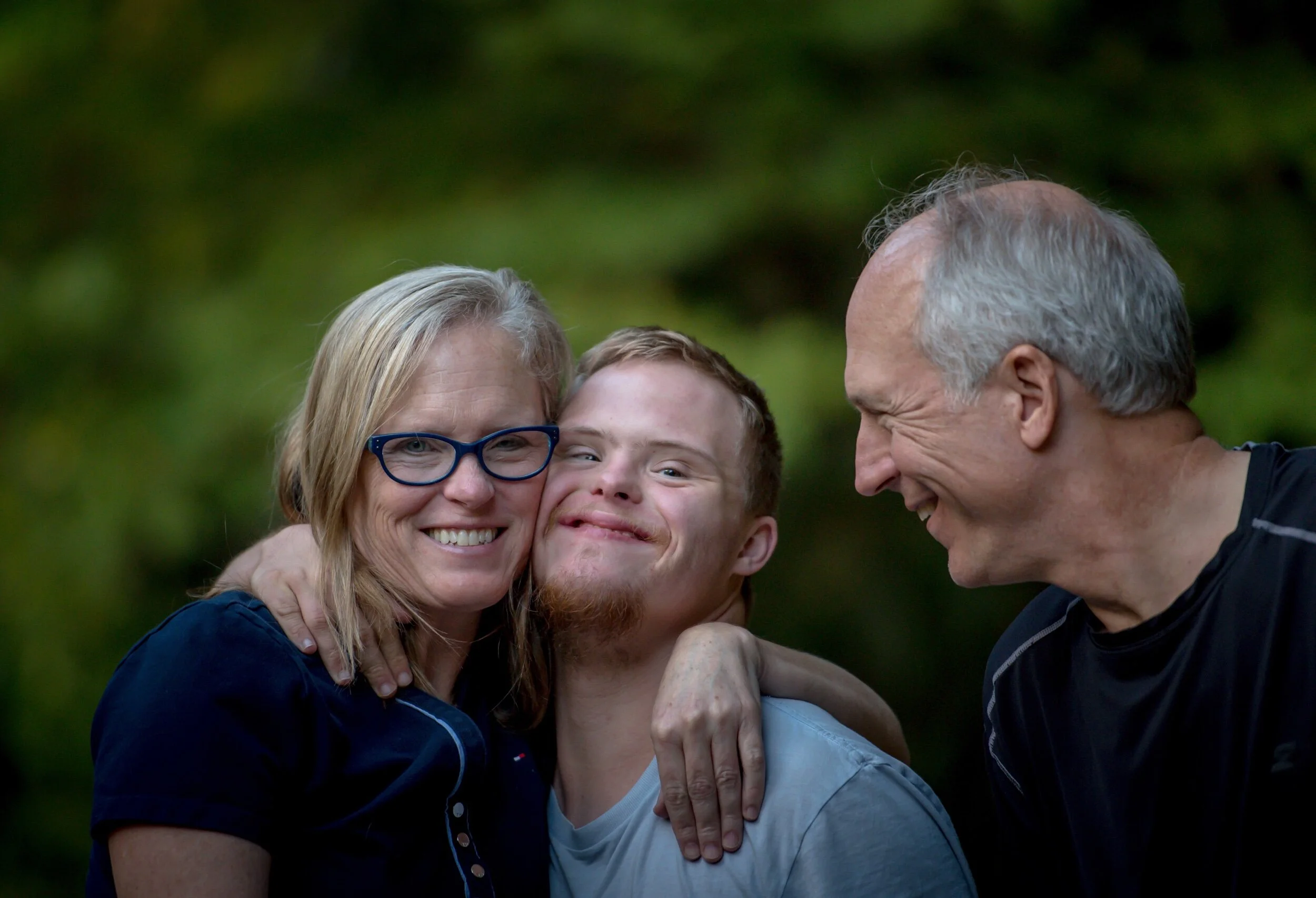The Peace of God
“Rejoice in the Lord always. Again I will say, rejoice! Let your gentleness be known to all men. The Lord is at hand. Be anxious for nothing, but in everything by prayer and supplication, with thanksgiving, let your requests be made known to God; and the peace of God, which surpasses all understanding will guard your hearts and minds through Christ Jesus.”
Times of uncertainty and upheaval are frightening and painful for everyone, but we all handle adversity differently. Some people naturally embrace risk or change and dislike tradition, believing newer must mean better. Others are so uncomfortable with anything new or different they automatically reject it on the principle that their ways are the only right ones. Although cultures and societies have changed over the last 2,000 years and will continue to transform, human hearts have not.
Christians could almost think Paul was reading today’s headlines and writing Philippians and Colossians specifically for us. We could use some more of the peace, love, joy, and unity Paul talks about in these epistles. Like our ancestors, we struggle with fear, anger, division, and quarreling. Paul lamented such tendencies when he wrote, “For all seek their own, not the things which are of Christ Jesus (Philippians 2:21). He said that human traditions and differences of opinion were causing division and leading Christians to struggle with their faith and relationships (Colossians 2:8-10, 20-23). Paul warned them to let go of human based beliefs and remember their citizenship was in heaven (Philippians 1:21, Philippians 3:20, Colossians 3:1-4). God intends us to bless and support one another so that we can “thank God upon every remembrance” of our church family (Philippians 1:3).
While women have a different role in the church than men, we’ve always played an important part in building up the church or tearing it apart. We see this in the example of Euodia and Syntyche. These women were active church members at Philippi whose personal differences so threatened the well-being of the church that they were actually scolded by name. Paul chose not to discuss the reasons behind the disagreement or point out who was right or wrong since that wasn’t the real issue. The real problem was their attitudes. Paul told them to “be of the same mind in the Lord” and stand fast in one spirit with one mind (Philippians 1:27, 4:2-7). From other passages such as Romans 14:21 and 1 Corinthians 8:13, we know God would have us surrender our opinions and privileges rather than hurt someone or cause them to sin. Paul said, “... but in lowliness of mind let each esteem others better than himself. Let each of you look out not only for his own interests, but also for the interests of others” (Philippians 2:1-4). He reminded Euodia and Syntyche that when they became Christians, they “put off” anger and malice and were unified in Christ despite their differences (Colossians 3:8-11). Paul also commands us to consider our influence on non-Christians in Philippians 2:14-15. He says, “Do all things without complaining and disputing, that you may become blameless and harmless, children of God without fault in the midst of a crooked and perverse generation, among whom you shine as lights in the world.” He continues this point in Colossians 4:5-6 when he writes, “Walk in wisdom toward those who are outside, redeeming the time. Let your speech always be with grace, seasoned with salt, that you may know how you ought to answer each one.”
Despite adversity, Paul not only taught these principles, but He lived them as a follower of Christ. Our Savior sacrificed personal comfort to live like a servant even though He was the Son of God. Since we are His followers too, we must do the same. “Let this mind be in you which was also in Christ Jesus, who, being in the form of God, did not consider it robbery to be equal with God, but made Himself of no reputation, taking the form of a bondservant, and coming in the likeness of men. And being found in appearance as a man, He humbled Himself and became obedient to the point of death, even the death of the cross.” (Philippians 2:5-8) In His earthly form, Jesus was not someone high society back then or today would find impressive (Isaiah 53:2-3). His teachings were new, and they angered some people whose personal opinions and plans were different from His. Jesus was poor, He walked everywhere, and He worked with His hands, so He wouldn’t appear well-groomed and well-dressed. He grew up in a different culture, so His way of dressing, talking, and His sense of etiquette would be different than ours. But these are all human traditions and standards of judging a person. God didn’t place Jesus on Earth in a royal household for a reason. Jesus didn’t seek worldly honor or to establish an earthly kingdom. God put Jesus in a humble home because He was here to bring grace, unity, and love through His church. Jesus was so concerned with unity just before His death on the cross He prayed for all Christians, “that they all may be one, as You, Father, are in Me, and I in You; that they also may be one in Us, that the world may believe that You sent Me” (John 17:21).
Paul also could’ve chosen to enjoy a comfortable life instead of serving God and others (Galatians 1:10). Before becoming a Christian, Paul was a prominent and well-educated member of traditional Jewish society as well as a Roman citizen. He told the Philippian church, “If anyone else thinks he may have confidence in the flesh, I more so“ (Philippians 3:4-6). God could have appointed anyone He wanted to preach to the Gentiles, but He chose someone who had everything to lose if he obeyed the gospel. Still, Paul says, “But what things were gain to me, these I have counted loss for Christ. Yet indeed I also count all things loss for the excellence of the knowledge of Christ Jesus my Lord, for whom I have suffered the loss of all things, and count them as rubbish, that I may gain Christ and be found in Him” (Philippians 3:7-11).
When we read Colossians 3-4, we usually focus on the instructions given to wives, children, and slaves who had little control over their lives. We forget the commands given to those such as masters who had the advantage over their fellow Christians in worldly terms. Stop and think about this. How would Jewish Christians like Simon the Zealot feel the first time a Roman soldier like Cornelius the centurion shared the Lord’s Supper with them? Or what if you were a wealthy Roman citizen in the first-century and a slave like Onesimus became an elder in your local congregation? Legally, politically, and socially, such people might struggle to find something in common and get along apart from the church, yet in God’s eyes we’re all one and all equal (Galatians 3:28, Colossians 3:9-11). Like us, first-century Christians needed to carefully guard their hearts to live with humility and love toward everyone as Paul instructs. Since many of us grew up in 20th century western society, our social status and standard of living as women is much greater than what women of the past or in other countries experience. If we’re not a member of a minority and we’ve had access to enough good food, clean water, adequate clothing, a safe home, a high school education, and decent medical care, then we’re uncommonly blessed. Jesus said, “For everyone to whom much is given, from him much will be required” (Luke 12:48). When we’ve been so blessed, we have a responsibility to use our freedoms and advantages not to maintain our own comfort, but to point those who are suffering or caught in sin toward God.
Even in the same country or city, everyone’s situation and experiences vary immensely and these things affect how vulnerable we are to mistreatment or misunderstanding. In this world where nothing is permanent or perfect, God created an entire spectrum of people and cultures, so it’s expected that we’ll have our differences. How Christians handle these differences distinguishes us from the world. We don’t all have to be the same or agree about everything to be Christians and love each other. We all make mistakes, and our circumstances will change in unexpected and often painful ways, but what God requires of us and what He promises us never changes. We must hang onto God and each other to receive the comfort of heaven in the end (John 16:33, Romans 5:3-5, 2 Timothy 3:12). God tells us the only way we can navigate life’s difficulties is through loving and forgiving one another in Colossians 3:12-17. Paul writes,
“Therefore, as the elect of God, holy and beloved, put on tender mercies, kindness, humility, meekness, longsuffering; bearing with one another, and forgiving one another, if anyone has a complaint against another; even as Christ forgave you, so you also must do. But above all these things put on love, which is the bond of perfection. And let the peace of God rule in your hearts, to which also you were called in one body; and be thankful. Let the word of Christ dwell in you richly in all wisdom, teaching and admonishing one another in psalms and hymns and spiritual songs, singing with grace in your hearts to the Lord. And whatever you do in word or deed, do all in the name of the Lord Jesus, giving thanks to God the Father through Him.”
If we don’t let go of worldly labels and standards and open our hearts to people who are different from us, or who aren’t judged as worthy by the world, we reject the sacrifice Christ made in shedding His blood to unify us (Colossians 1:19-22). In Philippians 3:2-3 Paul compares Christians who ignore the pain they’re causing vulnerable people so they can hold onto their opinions and ways of doing things to wild dogs mutilating their victims. He calls them “enemies of the cross of Christ … who set their mind on earthly things” (Philippians 3:17-21). None of us wants to harm those who are already hurting, but it’s so easy to do unless we constantly guard our hearts and our tongues (Matthew 7:12, James 3:6-10). Paul shows us by example that our discomforts and our differences don’t excuse or dictate our attitudes, words, and actions. Like Jonah did in the Old Testament, Paul could have complained that he’d been asked to accept Gentiles as equals, admit his mistakes, and give up his comforts to serve God and his fellow Christians. Instead, he assures us, “for I have learned in whatever state I am, to be content: I know how to be abased, and I know how to abound. Everywhere and in all things I have learned both to be full and to be hungry, both to abound and to suffer need. I can do all things through Christ who strengthens me (Philippians 4:11-13). Paul chose to focus on loving God and others instead of how he felt in the moment, and he was rewarded with eternally based strength and peace (2 Corinthians 7-12).
The peace of God is not merely some God-given personal cushion against the hard world. This perishable world full of imperfect people will never be totally free from suffering, fighting, evil, and injustice, but Christians are still a people of eternal joy, love, and peace (Galatians 5:22-26). God’s peace comes from purposeful management of thoughts, attitudes, words, and actions within our hearts and relationships to preserve the unity Christ paid for with His blood and keep our eyes on Heaven. Our individual sense of peace isn’t based on what’s happening around us or whether we agree with all our brothers and sisters about everything. Personal peace is intertwined with the peace and unity of the church and founded on the hope of heaven. If the church and its members focus on eternity instead of the temporary things of this world, we won’t hold onto ideas,, opinions, or emotions that cause hurt, strife, or division. Shining the light of God’s love over what is good about our lives and each other helps put the pain of this world in an eternal perspective (Matthew 10:22, Philippians 4:8). Christians have to choose a mindset of peace, love, joy, and contentment if they want the promise of “peace that surpasses all understanding” to guard them against life’s trials and guide us toward heaven (Philippians 4:7). Peace isn’t just a feeling. Peace is a commitment, like our commitment to Christ.
“Therefore, as the elect of God, holy and beloved, put on tender mercies, kindness, humility, meekness, longsuffering; bearing with one another; even as Christ forgave you, so you also must do. But above all these things, put on love, which is the bond of perfection. And let the peace of God rule in your hearts, to which also you were called in one body; and be thankful. Let the word of Christ dwell in you richly in all wisdom, teaching and admonishing one another in psalms and hymns and spiritual songs, singing with grace in your hearts to the Lord. And whatever you do in word or deed, do all in the name of the Lord Jesus, giving thanks to God the Father through Him.”
Prayer Journal Prompt:
What’s a small kindness you can show someone you might be tempted to quarrel with, especially a church member? Sending them a card, leaving a kind comment instead of an argumentative one on social media, complimenting their virtues and achievements instead of criticizing them, not even in private? You can use your prayer journal to brainstorm or ask God for help in showing His peace and love to others.



















